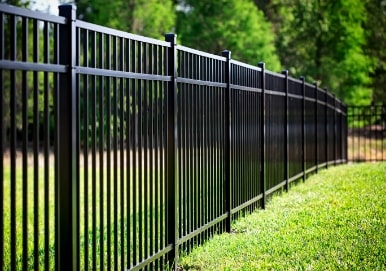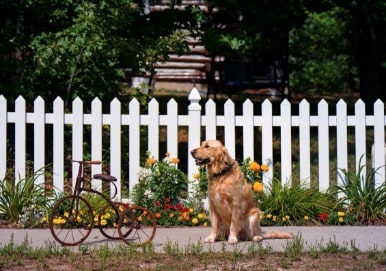In today’s world, maintaining good relationships with our neighbors is essential for fostering a friendly and cooperative community. One way to ensure these positive relations is by installing a “Good Neighbor Fence.” In this blog post, we will explore the concept, benefits, and considerations of installing such a fence.
What is a Good Neighbor Fence?
A Good Neighbor Fence is a type of boundary fence designed to be equally attractive and functional from both sides. Unlike traditional fences, which often have a “good” side facing one property and an unfinished side facing the other, a Good Neighbor Fence is constructed to look the same on both sides. This design philosophy promotes fairness and mutual respect between neighbors.
Benefits of a Good Neighbor Fence
1. Enhanced Aesthetic Appeal
One of the primary benefits of a Good Neighbor Fence is its visual appeal. Since both sides of the fence look identical, it enhances the overall appearance of your property and your neighbor’s property. This can be particularly important in residential areas where curb appeal matters.
2. Improved Neighbor Relations
Installing a Good Neighbor Fence demonstrates consideration and respect for your neighbors. It avoids the common issue of one neighbor feeling slighted by having the “ugly” side of the fence facing their property. This thoughtful approach can help maintain and even improve neighborly relationships.
3. Increased Property Value
A well-constructed and visually appealing fence can boost the value of your property. Prospective buyers often appreciate the extra effort put into creating a harmonious and attractive boundary. This can be a selling point if you decide to put your home on the market.
Considerations When Installing a Good Neighbor Fence
1. Local Regulations and HOA Rules
Before installing any fence, it’s crucial to check local regulations and homeowners’ association (HOA) rules. Some areas have specific requirements regarding fence height, materials, and placement. Ensuring compliance can prevent future disputes and potential fines. For more information on local regulations, see our blog!
2. Materials and Design
Choosing the right materials and design is essential. Common materials include wood, vinyl, and composite. Each material has its advantages and disadvantages, so it’s important to consider factors such as durability, maintenance, and cost. For more information on materials, see our blog!
3. Shared Costs
In many cases, neighbors may choose to share the cost of fencing. This can be a fair arrangement, given that both parties benefit from the improved aesthetics and functionality. It’s important to have a clear agreement in writing to avoid misunderstandings later.
Examples of Good Neighbor Fences
There are various styles of Good Neighbor Fences to choose from, depending on your preferences and budget. Home Depot provides a quick rundown of fencing types. Here are a few popular options:
1. Board-on-Board Fence
A board-on-board fence is constructed with overlapping vertical boards on both sides, creating a sturdy and attractive fence that provides privacy and security.
2. Shadow Box Fence
A shadow box fence, also known as a “good neighbor” or “neighbor-friendly” fence, alternates pickets on each side of the fence rails, offering the same appearance on both sides and allowing airflow.
3. Double-Sided Vinyl Fence
Vinyl fences are known for their durability and low maintenance. A double-sided vinyl fence ensures that both sides look identical, providing a clean and modern appearance.
Conclusion
Investing in a Good Neighbor Fence is not just about marking property lines; it’s about building better relationships and creating a more harmonious community. By considering local regulations, choosing the right materials, and discussing cost-sharing arrangements with your neighbor, you can create a boundary that benefits everyone involved.





